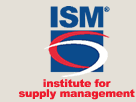Home > Publications > eSide Supply Management

Career ROI
Becoming Indispensable
Author(s):
Mark Trowbridge, CPSM, C.P.M.
March/April 2009, eSide Supply Management Vol. 2, No. 2
4 Ways to Build Your Job Security in a Struggling Economy
It's official: The United States is in a recession. And, other nations' economies have also fallen significantly. As companies and governmental agencies struggle to reduce expenses, some are closing their doors, merging, entering bankruptcy protection or downsizing.
All these events create an unstable employment environment that can hit anyone in the marketplace. As President Ronald Reagan once said, "Recession is when your neighbor loses his job. Depression is when you lose yours."
Recessionary times, however, can actually provide supply management professionals with opportunities to progress in their careers. These four strategies can enhance your prospects for career progression, even during times like these:
1. Be visible. During times of organizational change, many people stop taking chances. They step back and move into wait-and-see mode, merely performing the core functions of their jobs. On the contrary, this is a perfect time to step forward with superior job performance. During staff downsizing, a smart manager will do everything he or she can do to retain top-producing staff members — those who continue to put "scores on the board."

Attitude counts a lot. Happy workers are less
likely to get laid off than people who seem to
dislike what they do.
As a supply management professional, a slow economy can present many opportunities for you to generate savings because the basic elements of supply and demand now work in your organization's favor. In most market segments, demand is significantly down, which moves market pricing downward, too. Customers are buying less in most segments, and suppliers are offering concessions not offered during times of growth. If the supply chain is stable in a particular spend category, this can be an ideal time to create savings through sourcing or renegotiations.
Keep track of your contributions, and make sure current management and potential employers understand your value. This is also the best way to market yourself for the next job — which, of course, is like walking a tightrope; it must be balanced with humility.
It is also important to keep existing points on the board. Unstable periods are not the time to show up late for work or take an extended leave. Try not to do anything that detracts from your reputation as a top producer.
2. No whining! During tough times, senior management wants employees who build morale. Attitude counts a lot. Happy workers are less likely to get laid off than people who seem to dislike what they do.
3. Start networking — now! Even in this world of online job applications, a large portion of hiring occurs through personal relationships. This is also true of promotions among existing employees within an organization. At all times, it is good to have a network of beneficial contacts. These can be formed in many ways:
Your boss. Take time to build a strong business relationship with your direct manager. Talk with him or her about organizational trends and what you can do to help the team.
Your peers. Your reputation is largely based on your team members' perception of you. They share their opinions of you with internal customers and management, people with whom your boss interacts. Take time to help others look good. Usually, they will return the favor.
A key mentor. Building a mentoring relationship with a senior manager in another business line can be very helpful. Not only can this person give you advice about your current career path, he or she can also be a valuable source of guidance during times of reorganization.
To find a mentor, begin with the other managers who also report to your boss's boss. They typically have a good understanding of your division's opportunities and challenges and can provide unbiased ideas for how you can enhance your value for the organization.
Your merger counterpart. If your organization is undergoing a merger consolidation, be the first to volunteer to visit the counterpart organization. Build relationships there, and be a visible part of the successful team.
Trade groups and associations. You will not find the best jobs by uploading your résumé on an electronic job board; you must have relationships with human beings. Associations are excellent places to meet potential employers. Attend monthly dinner meetings and trade conferences. Dress appropriately. Take an interest in everyone there, and show interest in their job responsibilities.

If your current employer does not
know you are looking for another job,
be careful: Posting your résumé to a
general job board might send it into
the wrong hands.
4. Proactively prepare for change. Studies show that, on average, today's employees will change jobs seven times. During the typical career lifetime, that is a job change every six years. An old human resources rule of thumb says that a job seeker should expect to search for one month for every $15,000 a year in salary he or she expects to earn. So, it never hurts to have too many employment options.
Here are some ways to get ahead of the game:
Prepare a great résumé. Have more than one version available in case you are searching for both sole-contributor and management positions. Other versions might also be needed if your skills apply to any or all of the service, manufacturing or government sectors.
Résumés should be prepared in Microsoft Word 2003, not in rich-text format or as a PDF. HR recruiters often load all résumés into a folder on their PCs. Later, if they search these résumés for ideal candidates using Microsoft Word, they will not find the other types of documents. (Note: many businesses have not yet upgraded to the current version of Word, which is why the 2003 version makes the most sense unless otherwise specified by the career center site you are using.)
Build a portfolio of quality references. Get a letter of reference from every person to whom you report. Over the years, those relationships might dissolve; however, if you ask them to write a letter or recommendation, you can keep it forever. Also, make sure to ask several trusted persons to serve as references during times of job searches.
Strategically choose job Web sites. If your current employer does not know you are looking for another job, be careful: Posting your résumé to a general job board such as Monster.com might eventually send it into the hands of your own human resources department. Responding to specific job advertisements is the best way to go, especially if the hiring organization is clearly identified.
Carefully select a recruiting/staffing partner. Some people have great success with generalist staffing firms; others prefer to work solely with a firm that specializes in their types of placement. Take time to carefully review their capabilities, specialties and reputations.
Get up-to-date skills. Employers tend to replace workers with obsolete skills with employees whose skills are more current. While a bachelor's degree is a minimum requirement for many supply management job opportunities, an advanced degree or professional certification gives you an edge (the latter can also help to offset lack of a bachelor's degree). These take time to acquire, however, so begin the process now.
Regardless of your level of job security, these four techniques can help you stabilize your current employment situation. They can also be very helpful in positioning you for your next career opportunity.
Just How Secure Are You?
6 Questions to Help You Evaluate Your Current Employment Situation
In any struggling economy, it is best to look realistically at your employment circumstances. In this sense, the old expression is true: An optimist is often unpleasantly surprised whereas a pessimist is pleasantly surprised.
Right now is a good time to really evaluate how secure (and desirable) your current employment position is. The people who do not fare well during downturns are those who never saw it coming.
Here are six key questions to ask yourself:
- How stable is my employer? If sales or production volume is significantly down, then downsizing is a strong possibility. If your marketplace is mature and oversaturated, then downsizing or mergers are likely.
- Am I in a secure "type" of position? Positions are usually more secure if they are line roles rather than staff roles — in other words, those which are ancillary to the organization's core competency. Unfortunately, staff roles tend to be eliminated before line positions. Even less secure are those positions with project responsibility, and contractor/temporary roles usually are the first to go.
- Am I geographically desirable? When staffing is adjusted, employees who work at corporate or key plant locations tend to fare better than those who do not interact face-to-face with senior management on a daily basis.
- Is my direct boss in a stable strategic position? The direct reports of high producers tend to survive organizational changes better than counterparts in lesser-producing functions.
- How strong are my performance evaluation scores? If you do not have a strong history of performance (or if the working relationship with your current manager is not positive), there is reason to be concerned. Job performance is one of the two most frequent factors for employee downsizing, followed by...
- Seniority — how long have I been in this job? Human resources guidelines might single out new employees for downsizing. So, if you are surrounded by coworkers with seniority (even in other departments), there is reason to be concerned.

Mark Trowbridge, CPSM, C.P.M. is a principal with Strategic Procurement Solutions, LLC, a provider of supply management temporary staffing, training, online skills testing and cost reduction services. To contact this author, please send an e-mail to author@ism.ws.
For more articles and resources on career development, visit the ISM articles database.
Take me to the eSide home page.
-
About ISM
- Overview of ISM
- Media Room
- ISM Board of Directors
- ISM Officers Directory
- Affiliate Officers Directory
- ISM Affiliate Web Sites
- ISM Group and Forum Web Sites
- Frequently Asked Questions
- Chair's Corner
- ISM Annual Reports
- J. Shipman Gold Medal Award
- ISM Awards for Excellence
- Supply Management Month
- Association Governance
- ISM Ethical Principles and Standards
- Activity Calendar
- Principles of Social Responsibility
- ISM Position Statements
- Membership
-
Members Only
- InfoCenter
-
Member Information & Online Tools
- ISM Glossary of Key Supply Management Terms
- Access to CIPS Members Only Content
- Access to Supply Chain Council (SCC) Member Discounts and Resources
- ISM Tool Kit
- ISM Resource Guides
- ContractWare®Net and eTool Agreements
- Address Update Form
- Activity Calendar
- Affiliate Websites
- Group & Forum Websites
- ISM Principles and Standards of Ethical Supply Management Conduct
- ISM Group/Forum Enrollment Information
- Job Descriptions
- The Business Source
- Propurchaser.com
- eVendor Check
- Personal Professional Development Scorecard
- Affiliate Resources
- Career Center
-
Affiliate, Groups & Forums
- Affiliate, Group/Forum Award Information
- Group/Forum Enrollment Information
- Group/Forum Enrollment Form
- Groups & Forums Brochure and Flyer
- Group & Forum Case Studies
- Groups & Forums Promotion
- Spotlight on Groups and Forums
- Group and Forum Officers
- Affiliate Web Sites
- Group & Forum Web Sites
- Affiliate Officers
- ISM Officers
- Sign up for ISM's Groups and Forums Discussion List Servs
- Search for Speakers
- Discussion Forums
-
Additional Resources
- ISM Resource Guides
- Bid Specifications Database
- Purchasing/Supply Management Periodicals
- Other Web Resources
- Practix - A quarterly Best Practices publication
- ISM's Principles and Standards of Ethical Supply Management Conduct
- Associations/Organizations Useful to Purchasing/Supply Management Professionals
- CIPS Study
- Search Articles
- CIPS Members Only Content
-
Ethics and Social Responsibility
- ISM Ethical Principles and Standards
- Principles of Sustainability and Social Responsibility
- Business Case
- Supporting Organizations
- Fostering Sustainability and Social Responsibility Form
- Research
- Articles
- General Resources
- Training
- Assessments
- Metrics and Indices
- International
- ISM's Committee on Sustainability and Social Responsibility
- Job Descriptions
-
Education - Seminars, Conferences
- Conferences
- Seminars
- Knowledge Center — Online Courses
-
ISM-ADR School for Supply Management
- Customized and Standard Training and Development
- Professional Development Seminars (In-house, Instructor-Led)
- Knowledge Center Courses (Web-based, Online)
- DNA (Development Needs Analysis)
- ISM-ADR School for Supply Management Brochure
- Summary of all Program Formats
- Your Dedicated Program Managers
- Request for Professional Development Information
- Speaking Opportunities
- Speakers Directory
-
Academic/Student Opportunities
- ISM Education Resource Committee ERC
- ISM Academic Research Support Programs (Grants)
- North American Research Symposium (NARS)
- R. Gene Richter Scholarship Program for Undergraduate Students
- Scholarships Offered by Affiliates, Groups, and Forums
- Colleges and Universities Offering Purchasing/Supply Management Courses
- ISM Approved Programs
- Glossary of Key Supply Mgmt Terms
- ISM Resource Guides
- ISM Tool Kit
- Exhibiting/Sponsorship Opportunities
- Products
- Publications
-
Professional Credentials
- Frequently Asked Questions
- Certified Professional in Supply Management®
- Certified Professional in Supplier Diversity
- Certified Purchasing Manager (C.P.M.)
- Accredited Purchasing Practitioner (A.P.P.)
- Certification Forms
- Work Experience Information
- Credentials Discussion Forum
- Credentials Verification
- Additional Program Information
- International Certification Contacts
- Supply Line 2055: Certification Update
-
ISM Report On Business®
- Latest Manufacturing ROB
- Latest Non-Manufacturing ROB
- Reports On Business® Overview
- Report On Business® Brochure
- Semiannual Reports
- Seasonal Adjustments
- Manufacturing Data
- Non-Manufacturing Data
- ROB Graphical Data
- Regional Business Survey Data
- How to Respond to ROB
- ROB Online Infokit
- JPMorgan Global PMI Reports
- Other Economic Information
- ROB Release Dates
- ROB Frequently Asked Questions
- ISM/Forrester Research Report
-
Career Center
- Your Profile
- Register for the Career Center
- Job Seekers
- Employers' Corner
-
More Career Resources
- Job Descriptions
- Job Hunting Sites on the Web
- Job Hunting Sites for Specific Regional Areas
- Job Hunting Sites with Tools Such as Resume Writing Advice
- Careers In Supply Management
- Resources on Relocating
- Salary/Career-Building Resources
- Schools Offering Purchasing/Supply Management Courses
- Academic/Student Opportunities
- Frequently Asked Questions
- CAPS Research
-
Tools
- InfoCenter
- Research Tools
- Business Book List
- Discussion Forums
- Directories
- Affiliate Resources
- Group & Forum Information
- eTool Agreements
- ISM's Principles and Standards
- Supply Management Defined
- Other Association Links
- Other Related Information
- The Business Source
- Propurchaser.com
- eVendor Check
- Purchasing & Supply Sourcing Guide
- Access CIPS Members Only Content
- Access to Supply Chain Council (SCC) Member Discounts and Resources

In This Section: ![]()



